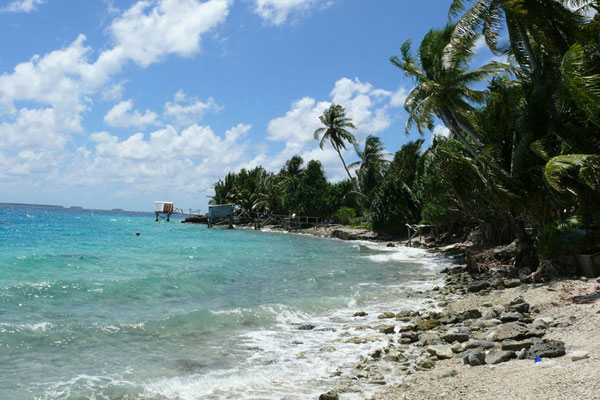
UN warns Pacific islands of extreme weather risks during upcoming wet season
A joint press release issued on Friday by the UN Economic and Social Commission for Asia and the Pacific (ESCAP) and the Regional Integrated Multi-Hazard Early Warning System for Africa and Asia (RIMES) notes that global forecasts indicate the onset of an abnormal warming of surface ocean waters, known as the El Niño effect, as the Pacific region experiences its wet season during the next six months.
The resulting changes in climate, which will see both increased and decreased rainfall, depending on the exact location, will threaten vulnerable sectors such as agriculture, freshwater resources, reef ecosystems, fisheries, public health and infrastructure.
“Even a weak El Niño event could put Pacific Island countries at high risk,” said Shamika Sirimanne, Director of ESCAP's Information and Communications Technology and Disaster Risk Reduction Division.
“Their location means they are often described as disaster hotspots and their remoteness and economic fragility add to their vulnerability to shocks from even mild deviations in climate,” she added.
The advisory for Pacific island countries explains that El Niño will be associated with irregular rainfall in the Pacific region, although effects vary across different regions within each country.
The northern parts of many countries, especially those with wide geographical coverage, will experience increased rainfall during an El Niño year, while the southern parts receive less.
A reduced wet season rainfall could impact subsistence agriculture the most, causing a loss of cash income and reducing people's ability to support themselves – particularly in Timor-Leste, Papua New Guinea, Solomon Islands, Vanuatu, and Fiji.
Countries that normally have very low dry season rainfall, such as Timor-Leste and Papua New Guinea, are put at particular risk of drought-like conditions, ESCAP said.
Meanwhile, the likelihood of cyclones and severe storms for the Marshall Islands, the Cook Islands, Tuvalu, Samoa, Niue and Fiji is predicted to increase by 30 per cent as ocean temperatures temporarily increase, the forum said.
To monitor these risks, ESCAP recommends establishing a regional mechanism that helps make proactive climate information available to support better preparedness and resilient development planning.
Strengthening early warning systems and multi-stakeholder platforms for risk communication in this way would facilitate understanding of the long-term risks and harmonization of risk management strategies and development plans of countries in the region, the agency said.
Nukunonu Atoll seaside is one of the regions of the world vulnerable to the impact of the climate change. UN Photo/Ariane Rummery (file photo)
Support Our Journalism
We cannot do without you.. your contribution supports unbiased journalism
IBNS is not driven by any ism- not wokeism, not racism, not skewed secularism, not hyper right-wing or left liberal ideals, nor by any hardline religious beliefs or hyper nationalism. We want to serve you good old objective news, as they are. We do not judge or preach. We let people decide for themselves. We only try to present factual and well-sourced news.







